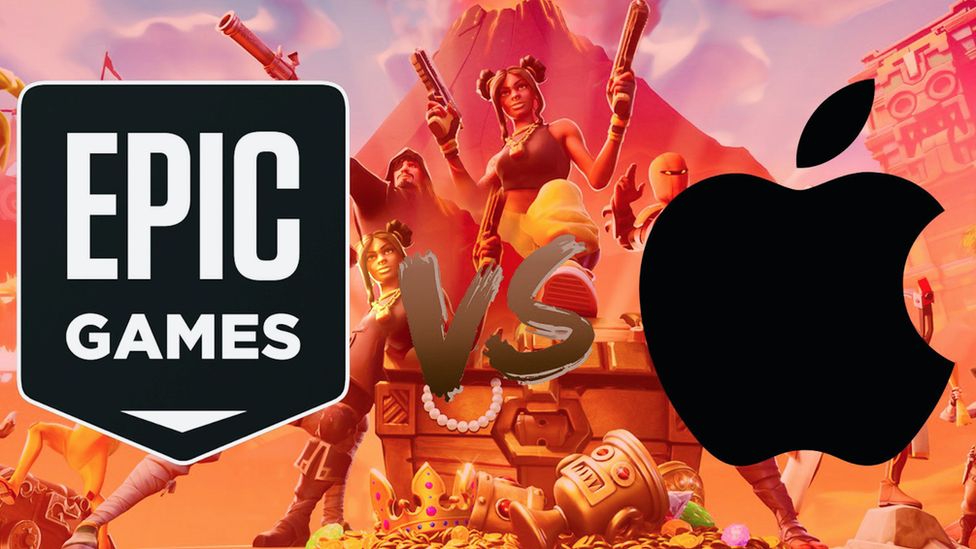Apple vs. Epic Games
In the ever-evolving landscape of the technology and gaming industries, few battles have been as public and contentious as the showdown between Apple and Epic Games. What began as a dispute over app store policies quickly escalated into a legal and ideological clash that could reshape the future of digital marketplaces. This article delves into the origins, developments, and potential implications of the Apple vs. Epic Games conflict.
Table of Contents
The Genesis of the Dispute
The conflict between Apple and Epic Games, the developer behind the immensely popular game Fortnite, came to a head on August 13, 2020. On that day, Epic Games introduced a direct payment system in the iOS version of Fortnite, bypassing Apple’s App Store payment system. This move was a clear violation of Apple’s policies, which mandate that all in-app purchases go through Apple’s payment system, ensuring the tech giant receives a 30% commission. techcrunch.com
Apple responded swiftly, removing Fortnite from the App Store. Epic Games was prepared for this reaction and immediately filed a lawsuit against Apple, accusing the company of monopolistic practices and alleging that its App Store policies stifled competition and innovation. The legal battle was on, with Epic Games framing the dispute as a fight for the freedom of app developers and the rights of consumers.

Legal and Ideological Battlefield
Epic’s Arguments
Epic Games’ lawsuit against Apple centered on accusations of anti-competitive behavior. The company argued that Apple’s control over the App Store and its mandatory 30% commission on in-app purchases constituted a monopoly. Epic asserted that this not only harmed developers by limiting their revenue but also harmed consumers by inflating prices.
Epic’s CEO, Tim Sweeney, became a vocal critic of Apple’s policies. He compared the App Store to a tollbooth and argued that Apple’s practices were reminiscent of monopolies from the past. Epic’s legal team sought to prove that Apple’s control over iOS devices and the App Store created an unfair advantage, stifling competition from alternative app distribution platforms.
Apple’s Defense
Apple, on the other hand, defended its policies by highlighting the value and security it provides through the App Store. The company argued that its commission was justified due to the infrastructure, security, and development tools it offers to developers. Apple maintained that its strict guidelines ensure a safe and reliable user experience, protecting consumers from malicious software and ensuring quality.
Apple’s legal team also pointed out that Epic Games had agreed to the App Store terms when it launched Fortnite on iOS and that Epic’s decision to bypass the payment system was a deliberate breach of contract. They framed Epic’s actions as a calculated move to generate publicity and force Apple into a more favorable revenue-sharing agreement.
The Courtroom Drama
The courtroom battle between Apple and Epic Games was closely watched by industry insiders, legal experts, and consumers alike. The trial began on May 3, 2021, in the United States District Court for the Northern District of California, with Judge Yvonne Gonzalez Rogers presiding.
Key Testimonies and Evidence
The trial featured testimony from high-profile executives, including Tim Sweeney and Apple’s CEO, Tim Cook. Sweeney reiterated his stance that Apple’s policies were harmful to developers and consumers, while Cook defended the App Store’s practices, emphasizing the security and convenience it provides.
One of the key pieces of evidence presented by Epic was a series of internal Apple documents and emails that suggested the company was aware of the anti-competitive nature of its App Store policies. These documents were used to bolster Epic’s argument that Apple intentionally maintained a monopoly over app distribution on iOS devices.
Judge’s Ruling
On September 10, 2021, Judge Gonzalez Rogers issued her ruling. The decision was a mixed bag for both parties. The judge ruled that Apple’s anti-steering provisions, which prevented developers from directing users to alternative payment methods, were anti-competitive and ordered Apple to allow developers to include links to other payment options within their apps.
However, the judge also ruled in favor of Apple on several key points. She concluded that Apple was not a monopolist under federal or state antitrust laws and that the 30% commission was not inherently anti-competitive. The court found that while Apple’s control over the App Store could be seen as substantial, it was not sufficient to constitute a monopoly.

Implications and Reactions
For Apple
The ruling was seen as a partial victory for Apple, as it avoided being labeled a monopolist and did not have to fundamentally change its App Store business model. However, the decision to allow alternative payment methods posed a significant challenge to Apple’s revenue from in-app purchases. The company’s stock experienced a slight dip following the ruling, reflecting investor concerns about potential impacts on profitability.
Apple announced that it would appeal the ruling, seeking to overturn the decision on anti-steering provisions. The company also began implementing changes to comply with the court order, signaling a shift in how it managed the App Store and interacted with developers.
For Epic Games
For Epic Games, the ruling was a partial victory as well. The court’s decision to allow alternative payment methods was a win for Epic’s broader fight against what it viewed as restrictive app store policies. However, the failure to prove Apple was a monopolist and the lack of a ruling against the 30% commission meant that Epic did not achieve all its objectives.
Epic also announced plans to appeal the ruling, aiming for a more favorable outcome in higher courts. The company’s actions and the resulting legal battle had already sparked significant discussions in the industry about app store policies, potentially influencing future regulatory actions and developer strategies.
Industry and Regulatory Impact
The Apple vs. Epic Games showdown has had far-reaching implications for the tech and gaming industries. The case brought to light the growing discontent among developers over the control exerted by platform owners like Apple and Google. It has also prompted increased scrutiny from regulators worldwide, who are now more focused on ensuring fair competition in digital marketplaces.
Countries like South Korea have already enacted laws requiring app stores to allow alternative payment methods, and similar legislative efforts are underway in other regions. The European Union has also been investigating Apple’s App Store practices, and the case could influence the outcomes of these probes.
Conclusion
The battle between Apple and Epic Games has unveiled significant issues regarding the control and fairness of digital marketplaces. While the courtroom showdown provided some clarity, it also left many questions unanswered, ensuring that the debate over app store policies and antitrust regulations will continue for years to come. As both companies appeal the ruling, the tech world watches closely, aware that the outcome could reshape the landscape of app distribution and developer relations in profound ways.











